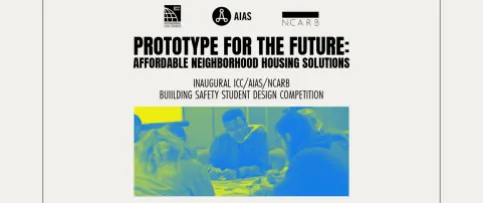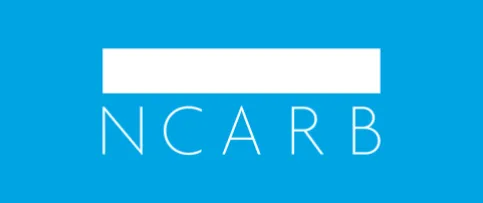Washington, DC—The American Institute of Architects (AIA) and the National Council of Architectural Registration Boards (NCARB) have released a new resource for developers and reviewers of continuing education (CE) course material. Ethics and Public Welfare Topics: A Guide to HSW Course Development offers guidance for covering ethics, equity, diversity, and inclusion in Health, Safety, and Welfare (HSW) CE courses.
Over the past several years, interest in social determinants of health and ethics-related CE courses has grown, leading to questions regarding if and how these topics qualify for HSW credit. Developed jointly by AIA and NCARB, Ethics and Public Welfare Topics: A Guide to HSW Course Development confirms that both AIA and NCARB accept ethics, sociology, and public welfare content within the framework of HSW CE credit. It also addresses common questions regarding how this content should be framed for approval as HSW-eligible content.
“Addressing systemic bias in the profession of architecture requires an approach that goes beyond simply bringing diverse people together,” said 2024 AIA President, Kimberly Dowdell, AIA, NOMAC. “We must create workplace cultures that foster belonging and reject discriminatory practices in order to help architects from all backgrounds contribute their best to protecting the health, safety and welfare of the public. The Ethics and Public Welfare Topics guide is an important step toward this objective.”
AIA and NCARB play separate but complementary roles in the development and review of continuing education material. As the largest CE course reviewer and architecture membership organization in the United States, AIA is critical to the development, presentation, and reporting of continuing education. Meanwhile, NCARB’s member licensing boards establish the criteria for Health, Safety, and Welfare topics both at the jurisdictional and national level, and each licensing board determines the continuing education requirements for their jurisdiction. Together, NCARB’s Continuing Education Guidelines and AIA’s Standards for Continuing Education Programs establish a framework for developing qualified HSW CE.
“By collaborating on this resource, we hope to affirm the importance of pursuing life-long learning in the areas of ethics and social determinants of health, as well as encourage more robust continuing education on these topics,” said NCARB Senior Architect and Vice President of Policy + International Relations Harry M. Falconer, Jr., FAIA, NCARB, HonD, Hon. FCARM.
Ethics and Public Welfare Topics: A Guide to HSW Course Development emphasizes the importance of framing potential HSW CE content correctly: To qualify for HSW credit, the course must focus on the occupants, users, and any other individuals affected by buildings and sites. The guide also provides detailed suggestions on where welfare-oriented content might fall within at least one of AIA and NCARB’s acceptable HSW topics—for example, a course related to “designing for community needs” under the Practice Management topic may address specific needs of marginalized communities, as could a course related to “resilience to natural and human impacts” under the Programming and Analysis topic. By offering greater clarity regarding what aspects of socially oriented topics would qualify for HSW credit, as well as those that might not qualify for HSW credit, AIA and NCARB hope to improve the quality and quantity of courses related to ethics and public welfare.
In addition to helping the individuals and organizations involved in developing continuing education content, this resource aims to assist other organizations responsible for approving continuing education content, such as individual licensing boards.
For more information about continuing education requirements and standards, download NCARB’s Continuing Education Guidelines and AIA’s Standards for Continuing Education Programs.
About AIA
Founded in 1857, AIA consistently works to create more valuable, healthy, secure, and sustainable buildings, neighborhoods, and communities. Through more than 200 international, state, and local chapters, AIA advocates for public policies that promote economic vitality and public well-being.
AIA provides members with tools and resources to assist them in their careers and business as well as engaging civic and government leaders and the public to find solutions to pressing issues facing our communities, institutions, nation, and world. Members adhere to a code of ethics and conduct to ensure the highest professional standards.
About NCARB
The National Council of Architectural Registration Boards’ membership is made up of the architectural licensing boards of the 50 states, the District of Columbia, Guam, the Northern Mariana Islands, Puerto Rico, and the U.S. Virgin Islands. NCARB, in collaboration with these boards, facilitates the licensure and credentialing of architects to protect the health, safety, and welfare of the public.
To achieve these goals, NCARB works with its Member Boards and volunteers to develop and facilitate standards for licensure, including the national examination and experience program. NCARB also recommends regulatory guidelines for licensing boards and helps architects expand their professional reach through the NCARB Certificate. Connect with NCARB on Twitter, Facebook, and YouTube.





